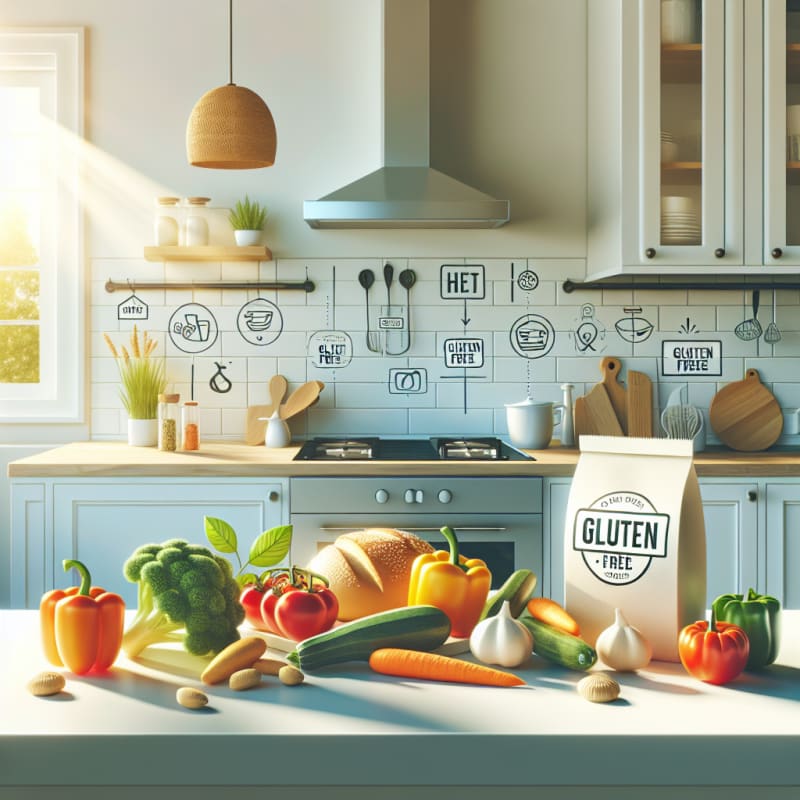Should You Be Gluten-Free If You Don’t Have Celiac Disease?
With food ingredient awareness at an all-time high, many consumers are asking: Should I go gluten-free even if I don’t have celiac disease? This question is especially relevant today, as food recalls, new labeling laws, and emerging dietary trends shape our shopping and eating choices. In this guide, we break down the latest science, news, and expert advice to help you make smart decisions about gluten and your health.
What Is Gluten and Who Needs to Avoid It?
Gluten is a protein found in wheat, barley, and rye. For people with celiac disease, gluten triggers an autoimmune reaction that damages the small intestine (FDA). Symptoms include digestive issues, fatigue, and nutrient deficiencies. The only treatment is a strict gluten-free diet.
- Celiac Disease: 1% of the U.S. population (PubMed)
- Wheat Allergy: Immune reaction to wheat proteins, not just gluten
- Non-Celiac Gluten Sensitivity (NCGS): Symptoms without autoimmune damage (PubMed)
Should You Go Gluten-Free Without Celiac Disease?
| Reason | Scientific Evidence | Potential Risks |
|---|---|---|
| Digestive comfort | Mixed evidence for NCGS (PubMed) | May overlook other causes (IBS, FODMAPs) |
| Weight loss | No direct link; may reduce processed foods (PubMed) | Gluten-free products can be high in sugar/fat |
| General wellness | No proven benefit for healthy adults (EFSA) | Risk of nutrient deficiencies (fiber, B vitamins) |
Expert Consensus
- FDA and EFSA recommend gluten-free only for medical necessity.
- Self-diagnosing gluten sensitivity can delay proper treatment for other conditions (PubMed).
- Gluten-free diets may lack essential nutrients (PubMed).
Latest News: Food Safety, Labeling, and Trends
- Food Recalls: Recent gluten contamination in “gluten-free” labeled products has prompted FDA investigations (AOL News).
- Labeling Laws: New EU regulations require stricter gluten-free labeling (Food Navigator).
- Emerging Trends: Plant-based and keto diets are rising, often intersecting with gluten-free options (NY Times).
These developments impact consumers with allergies, sensitivities, or ethical concerns. Staying updated can help you avoid unsafe products and make informed choices.
Smart Ingredient Choices: How Food Scan Genius Helps
Understanding food labels and ingredients is vital, especially with frequent recalls and reformulations. Food Scan Genius empowers users to scan products for allergens, gluten, and dietary preferences—making shopping safer and easier.
User Testimonial: “I have a wheat allergy and use Food Scan Genius every time I shop. It’s fast, accurate, and has saved me from accidental gluten exposure. Highly recommend!” — Jessica, Chicago
Download Food Scan Genius to simplify your food choices and stay protected.
Frequently Asked Questions
- Q: Is gluten-free healthier for everyone?
A: No. Unless you have celiac disease, wheat allergy, or NCGS, there’s no proven benefit. Gluten-free diets may lack important nutrients (PubMed). - Q: How can I know if a product is truly gluten-free?
A: Look for FDA or EFSA certified labels and use apps like Food Scan Genius for real-time verification. - Q: What should I do if I suspect gluten sensitivity?
A: Consult a healthcare provider for testing before changing your diet.
Conclusion: Ingredient Awareness for Smarter Food Choices
Whether you’re shopping for yourself or your family, understanding ingredients is essential—especially with today’s evolving food landscape. Unless medically necessary, gluten-free isn’t automatically healthier. Stay informed about recalls, regulations, and trends, and leverage tools like Food Scan Genius for peace of mind. Ingredient awareness is the key to safe, smart, and satisfying food choices for everyone.
References
- FDA: Gluten and Food Labeling
- EFSA: Gluten Topic
- PubMed: Gluten-Free Diet in Non-Celiac Disease
- PubMed: Non-Celiac Gluten Sensitivity
- AOL News: Should You Be Gluten-Free?
- Food Navigator: EU Gluten-Free Labeling Rules
- NY Times: Keto & Gluten-Free Trends





